You went to the market, or better yet the woods, and now you're staring at some beautiful chanterelles in your kitchen. If you're new to cooking chanterelles, or even if you're an old-school hunting pro, before you chop them up like any old mushroom, take a few minutes and consider some things with me.
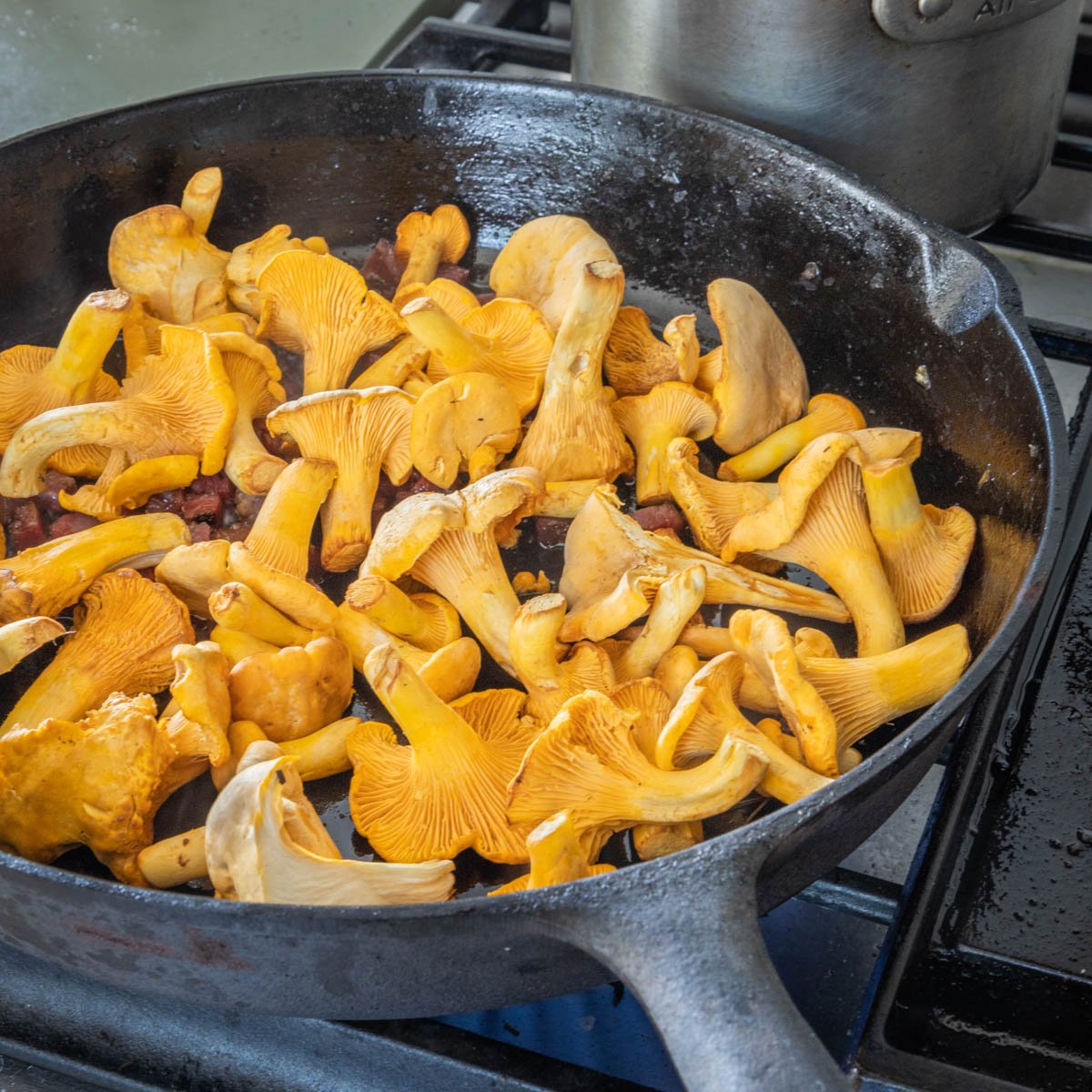
First: clean the mushrooms and store properly
After you get back from a long day of hunting, the last thing you may want to do is meditate over the sink with pounds and pounds of mushrooms, but home refrigerators generally have a really dry refrigeration to them. If you don't clean them quickly, as water evaporates from the mushrooms, the dirt will stay, and it will get stuck on, and be very difficult to remove.
You can make things easier on yourself by making sure to cut the dirty stem from the mushrooms in the field, and brush clean with the handy brush you keep in your bag (a pastry brush works great, or some mushroom knives like Opinel come with a brush in the handle.
At home, when I want to clean the mushrooms I fill a sink with very cold water, and then swish them, one by one, in the cold water to remove grit, then put them in a paper bag lined with slightly damp towels until I need them. Over the course of a few days, or even weeks, I may need to refresh the towel as some of the moisture evaporates in the fridge. You can keep the chanterelles in a plastic bag too, but they will go bad faster, the plus side is that plastic holds in moisture.
General cooking
Chants, as my mushroom hunting friends and I call them, more than many other mushrooms really beg for some special treatment. When I first got to cook chanterelles in a kitchen as a young chef, I didn't think twice about chopping up the big monsters that we would get from Oregon through the fall and winter, and when they get big (we were cooking a species called C. formosus that can be very large) cutting them into chunks can be the best way to go.
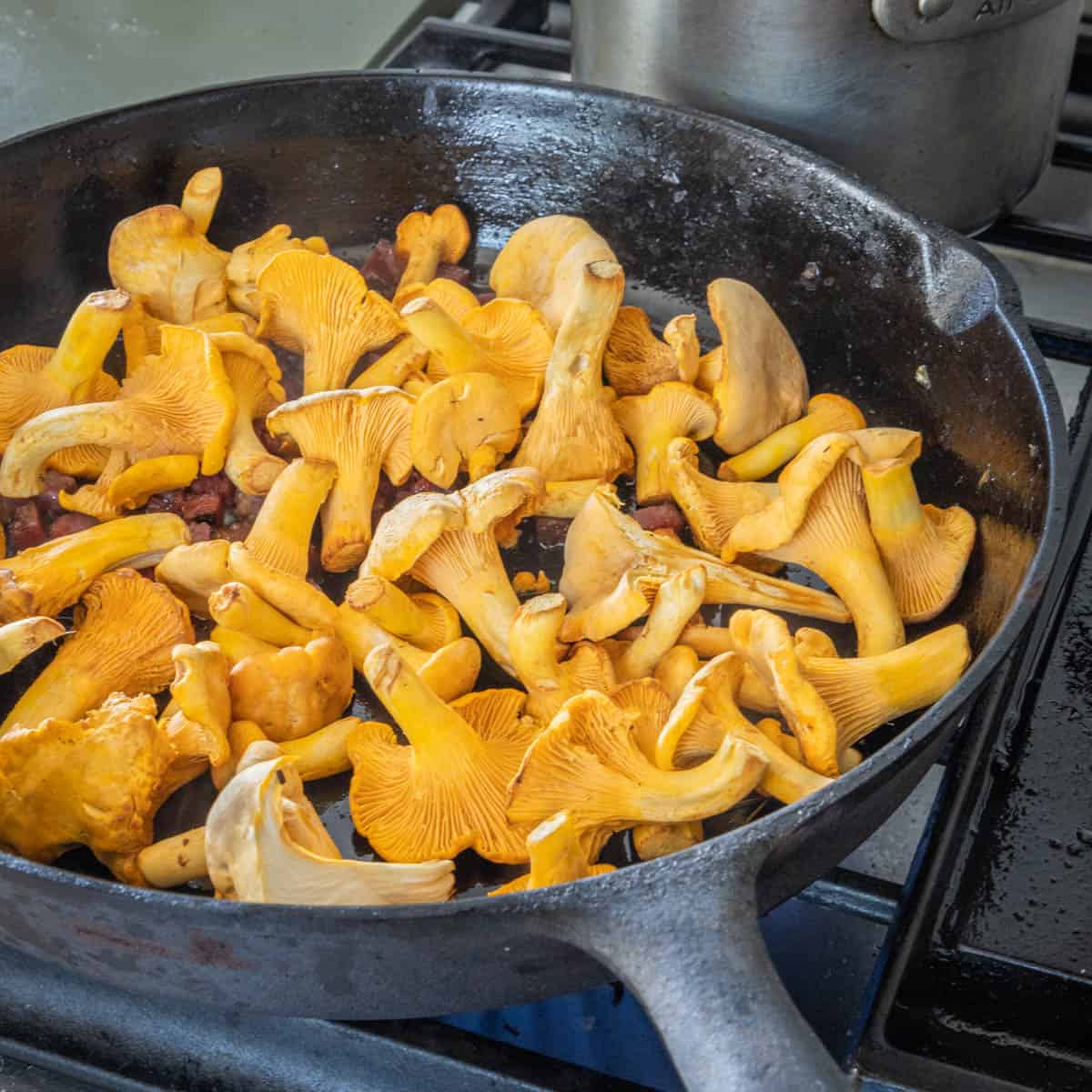
Cook those chanterelles whole!
There's a time and place for cutting up chanterelles, and I'll get to that, but for the most part, if I'm serving them at a restaurant, or at home, I leave them whole. My dream meal of chanterelles is filled with the small and medium-sized buttons, the first ones of the season. When they're still young, before the caps have become wavy and thin, they'll be very firm and almost have a squeaky cheese quality to them, firm, and chewy.
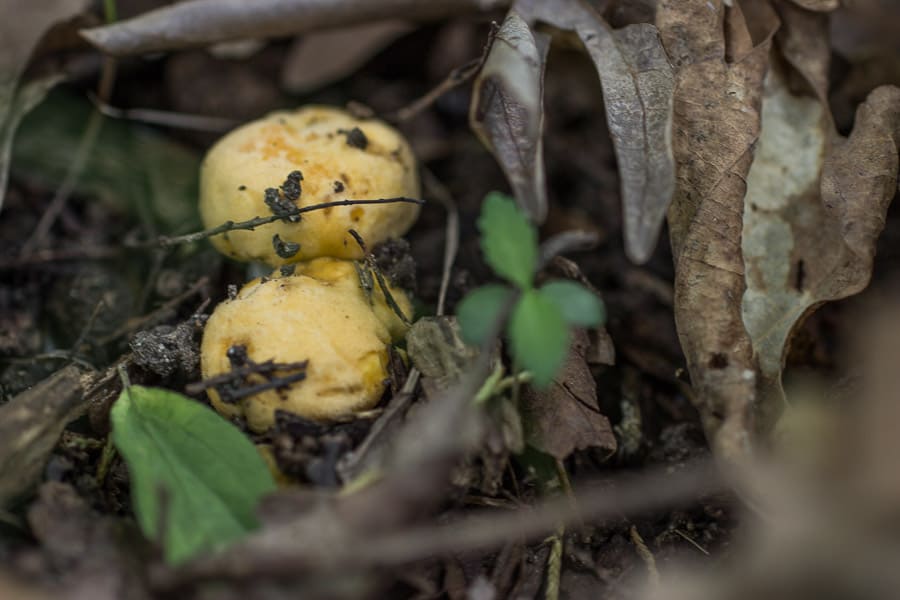
Even better than the texture though is the flavor, when you bite into one, the scent rolls up from your mouth into your nose, and there's no denying what you ate. As well, the best pickled chanterelles you'll have are going to be the smallest ones, since they'll hold their shape and texture. Older mushrooms can still be pickled, but can end up with a soggy texture.
Can you overcook chanterelles?
Absolutely, positively, yes. This is a common problem I see when people post recipes they've made, it's not their fault, I overcooked them for years too. Once the chanterelles are heated through, they're ready to eat, the problem can be that depending on the strength of the heat of the pan, it can take longer to brown the mushrooms than it does to actually cook them. Overcooked chanterelles don't necessarily have to be crunchy, obliterated nubs, they can also be browned, oily, slugs.
So how do you avoid overcooking the mushrooms?
Well, first make sure to allow the mushrooms to dry if their wet, if you're cooking a large species that holds water, (C. californicus, C. formosus). I like to dry mushrooms by packing them gently in towels in the fridge after I wash them, since I do typically wash them, unless they're absolutely pristine.
Secondly, make sure to cook the mushrooms on high heat, quickly. Lastly, don't hesitate to remove the mushrooms from the pan if you're cooking them with other things that take longer, or cook the mushrooms at the last minute in a separate pan and add to the dish at the last minute.
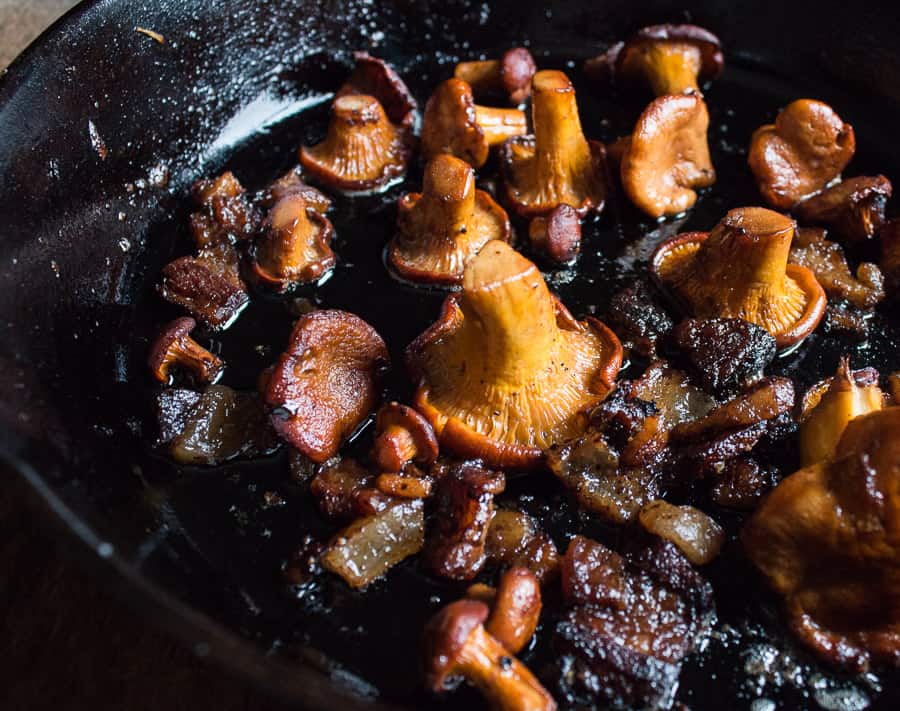
Browning
Another key to flavor with chants is to make sure that they get a little color, don't cook them until they dry out and get tough, but brown them a bit, gently. This can be tricky if you're trying to cook a big batch of them, but keeping them whole makes life alot easier again here.
When the mushrooms are cut up, they take up more surface area and can let off a lot of water if it was wet outside or if you had to rinse them, which I generally do unless they're very clean.
Older and bug damaged chanterelles
If you were to make the same dream meal you made using the first perfect buttons of the year with a bunch of chopped up chanterelles, to me it just wouldn't be the same.
Unfortunately the season doesn't go on forever, so if you buy you chanterelles, or hunt for them the chanterelles you have access to will eventually become be bigger throughout the year, or have damage from bugs. When I have mature mushrooms, or some with a couple bug holes, they'll generally get cut up and used for a number of different things. Here's a few examples:
- Duxelles are a classic way to preserve mushrooms, and not just chanterelles.
- Cooking chopped chanterelles in cream is a great way to stretch their flavor. Like most of us know, mushroom aromas are very soluble in cream-a classic way to enjoy them.
- Conserve, or a marinade with a little vinegar, garlic and herbs can work, and it's also great with young buttons.
- Drying or powdering your older chanterelles is ok too, but It does change their flavor a little differently than most mushrooms. I don't care for it, but many people do.
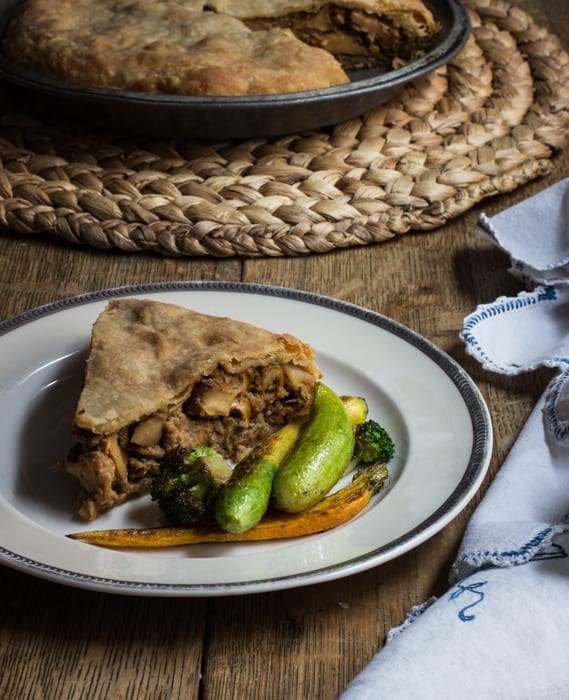

Barb
We were gifted some frozen chanterelles and black trumpets foraged by a friend on their property in Maine. We have been struggling with how to cook them so they aren't rubbery and flavorless. I'm thinking they aren't something that people normally freeze, but an unexpected situation resulted in several quart bags of frozen treasures.
Do you have suggestions? They were all washed well prior to freezing. So far I made a leek and black trumpet galette that was OK, and I tried frying the chanterelles in butter on high heat. They tasted like butter, but still had a rubbery texture.
I'm trying to get excited about cooking the rest, but to be honest, I'd rather not eat them again. I don't want to waste them though.... Thanks!
Alan Bergo
Hi Barb. The first question I'd ask is if the mushrooms were cooked before frozen. Black trumpets can be frozen raw on a baking sheet and put into freezer bags and cooked directly as if they were fresh. Chanterelles (sans yellowfoot chanterelles, which are technically and culinarily more similar to black trumpets) are more meaty and contain much more water. If fleshy chanterelles, hedgehogs, etc aren't cooked before they're frozen the water expands, tearing the flesh and making them limp and chewy when thawed. If they were frozen raw the best advice I have is to cook them directly from frozen in a hot pan with oil, not butter. bake the mushrooms at 325 F or so to evaporate their water. The even heat of the oven will resist splattering that will happen on a stovetop. Cook the mushrooms, stirring once and a while until they're browned and caramelized, season with salt, etc. You can also try making them into duxelles and baking them in a pan to evaporate water and concentrate their flavor. You could also cook the mushrooms down and brown them, add some butter and leek, celery, onion, or shallot and follow my recipe for chanterelle soup.
marjorie
OMG, where did this come from? I was just enjoying reading about the mushrooms I just bought! Didn't know mushrooms were political.
Alan Bergo
Me neither
David
Thanks so much for sharing your tips! I have been wanting to improve my chanterelle (and hedgehog) cooking techniques. The quick-high heat & browning tips very much resonate. One question: if the dry saute produces copious amounts of mushroom water, do you pour it off to keep things moving along, or allow them to boil in their own juices? I suspect I know the answer, but want to hear your thoughts. Thank you!
Alan Bergo
Hey David, you can pour it off, wipe out the pan and add the fat. If you don't it will cook down and glaze the pan and can burn.
Greg
Hello Alan
Do you recommend dry sautéing freshly picked chanterelles?
Alan Bergo
Sure, I usually end up doing that as I clean mine with water. If you haven't washed them and they're very dry, add a splash of water to make sure they don't burn.
Jacqui
and to lighten the atmosphere - ahhh .. yellow/gold/orange chanterelles.
I was saved from the embarrassment of having to admit that I had not packed enough food the last time I went on a canoe trip with my kids, my sister and assorted others by a large number of chanterelles. We were out for a few days in the Kawartha Highlands, I was responsible for food, and I had somehow misjudged how much adolescents eat (and most of them were MY adolescents - I had NO excuse), especially on canoe trips, and I had ALSO forgotten the golden rule of "always take an extra day's food because you never know of you'll get stuck". We were paddling down a narrow lake in the pouring rain and my eldest offspring Pierre and I spotted splashes of gold on the rock shelves ... so we stopped and scored A LOT of chanterelles that we managed to complement with a bunch of black trumpets we found at our campsite that evening... so I got away with not telling anybody about the food shortage :-).
That won't happen again. I learned my lesson.
Kari
Who knew a post about mushrooms could get so many biting comments from both ends? I’m not into drama but thanks for the info 🙂 so often when I Google foraging questions I’m brought to your website so it’s now bookmarked! We’re headed out foraging today and I’ve found your thorough posts helpful.
Alan Bergo
Thanks for stopping by Kari.
Guido Terabasso
Alan, you came across as a snottly little twit to the mycologist. Based on your view of life, you would have absolutely no right to criticize our government in Foreign affairs, because you do not work in the State Department, nor are your opinions regarding national security or the military allowed, because you have not served in that field either. So, all you are allowed to do, based on your rant, is sit back and let the government increase you taxes, make policy that raises gas and food costs like this twit Biden has been doing along with forcing 80,000 dollar electric cars on us, and all the while you would not be permitted to comment!
How boring this world would be if we all had to stay in our lane.
Alan Bergo
*Mouthy Italian stereotype has entered the chat*
Tired_of_Trolls
Nothing more than an excuse to get a little political propaganda posted on another page. It's a systemic effort.
Alan Bergo
Keyboard warriors are everywhere.
Quint Hankel
Well established chanterelle mycelium is not effected by harvesting the fruit west coast studies have determined. They return year after year. On my property in southwest Wisconsin I have two patches of chantis that I harvest reliably every year.
Disappointed Mycologist
In general one should cook wild foraged mushrooms for at least 20 minutes as there are many species of bacteria and molds that will grow on mushrooms, along with most commonly worms and slugs. Cooking your mushrooms for very short time is something you would do if you only pick young mushrooms, which is effectively weakening the mycelium if done to the extent most restaurant commercial foragers do. Also if you do not cut or break/rip open your chanterelle mushroom you might be serving a worm to a customer just for novelty plate aesthetics. Almost none of the information in your post was well thought out or informed. This is disturbing.
Alan Bergo
Some species should have extended cooking. For example, we can probably both agree species like honey mushrooms shouldn't be quickly sauteed. Chanterelles, and many others are different. Once they're cooked through and tender, they're fine. Claiming that a wet saute, (a good method for making mushrooms are completely cooked before consuming) is disturbing is just ignorant. Sometimes mushroom people get so spicy on things like this, so I'm kinda used to it. I have years of serving different species of wild mushrooms to the general public under my belt, and no one has ever gotten sick on my watch.
Jennifer Wimler
Ohhhhh SNAP!
I agree with you. I've been foraging for about 8 years now and cooking wild mushrooms a minimum of 20 minutes would not be good for the taste or texture.
I cook mine about 10 minutes- less if they are chopped, thin, small, etc.
Also, mycelium is NOT hurt by picking mushrooms- no matter how thoroughly. It's like picking apples or oranges off a tree. I most always leave some for the next person but not always. Many mushrooms regrow several times in a season.
Awgaakaabishiikwe
This is our second summer season in our retirement home in the UP of Michigan. I was thrilled beyond belief to discover last year that our woods and the surrounding forest are a gold mine of the golden and precious chanterelles. To preserve what we don't immediately nom down, I saute them slightly in butter, pack into half pint jars, then add water or white wine to cover.... as well as the butter and juice that they render out as they cook. When thawed their texture and taste is almost as good as fresh!